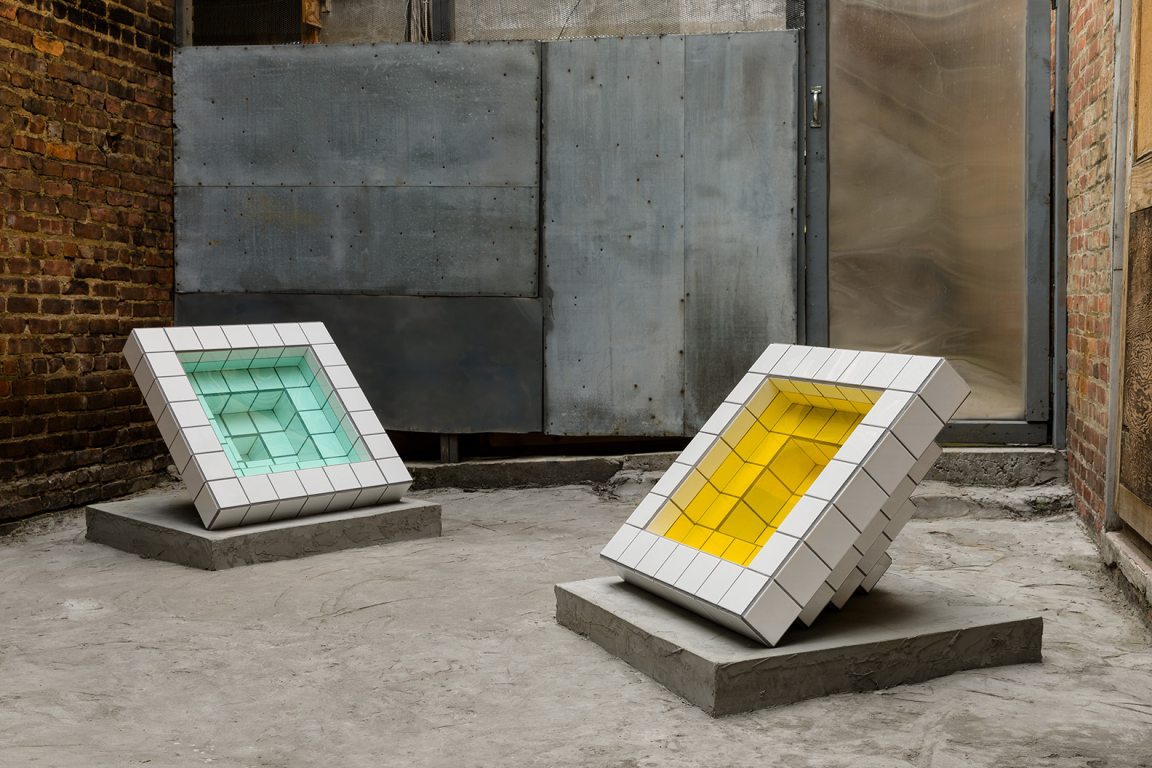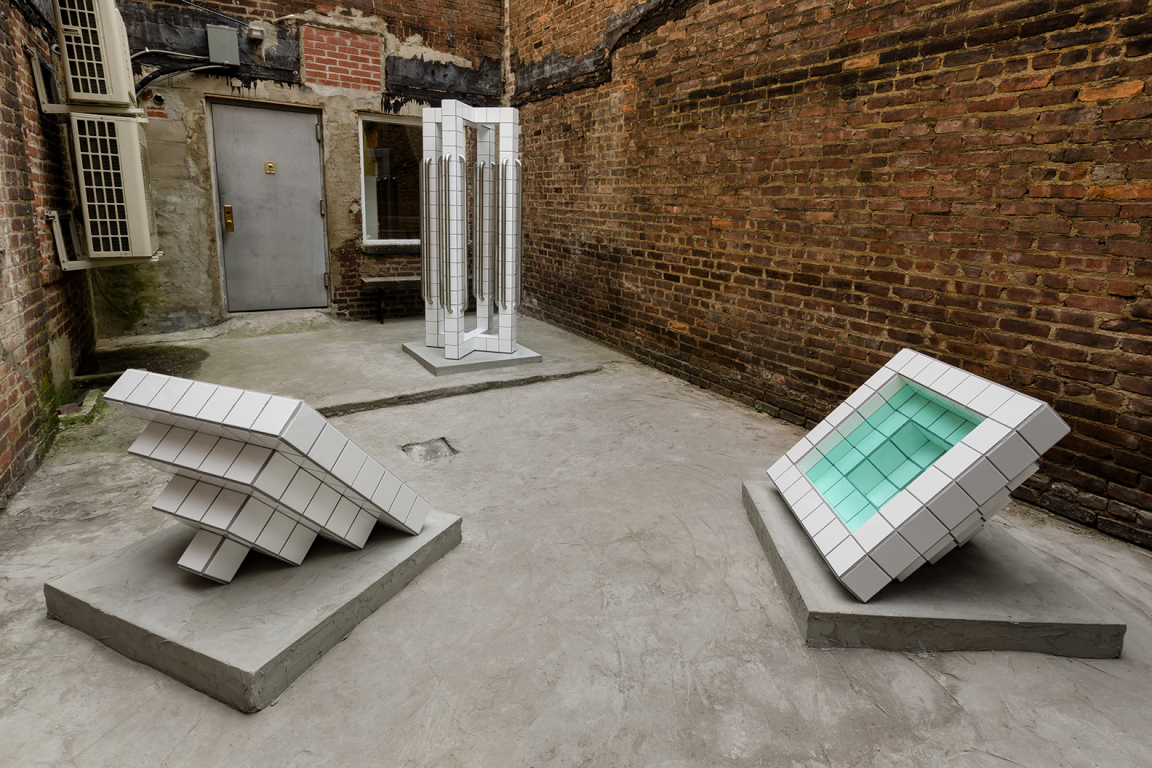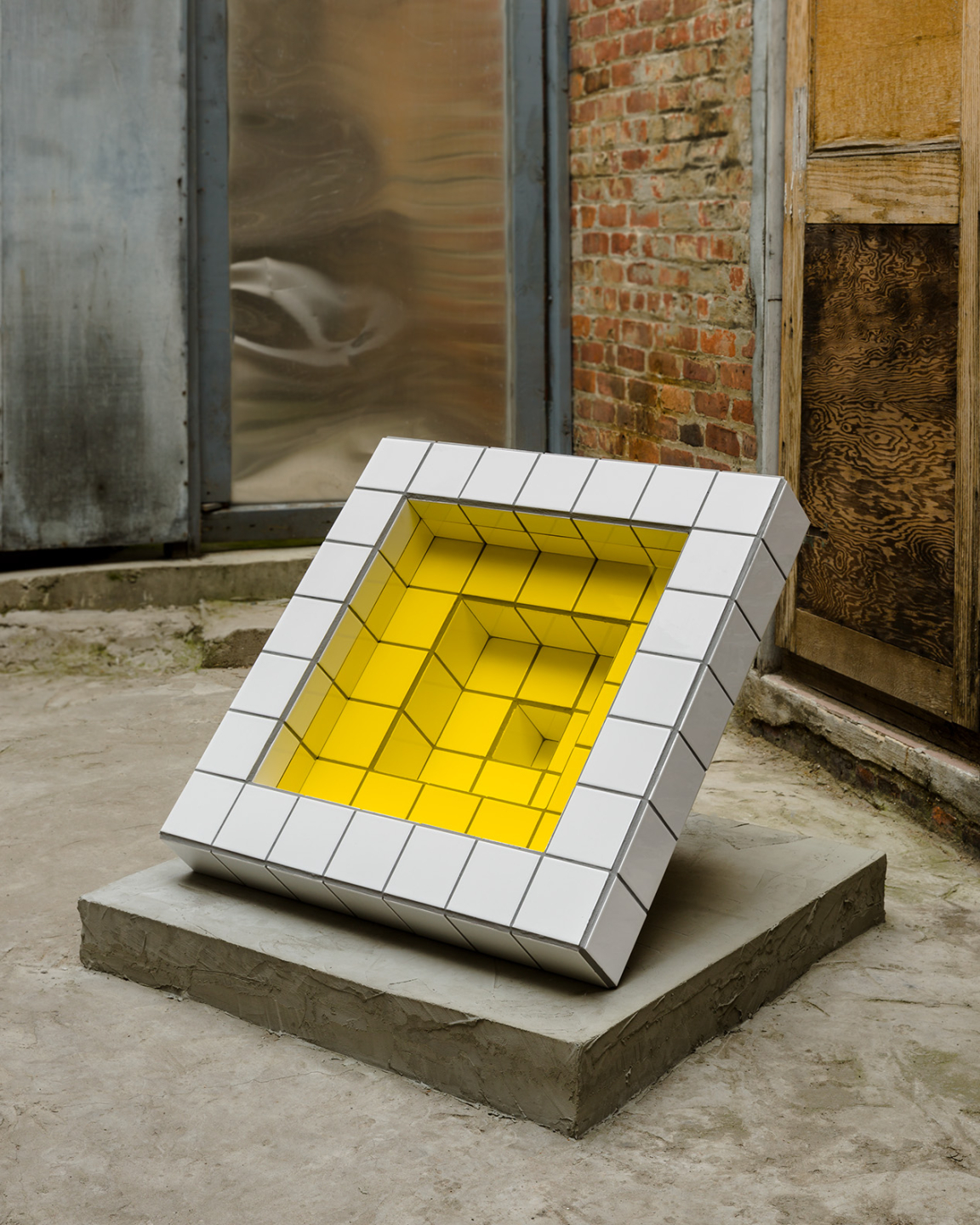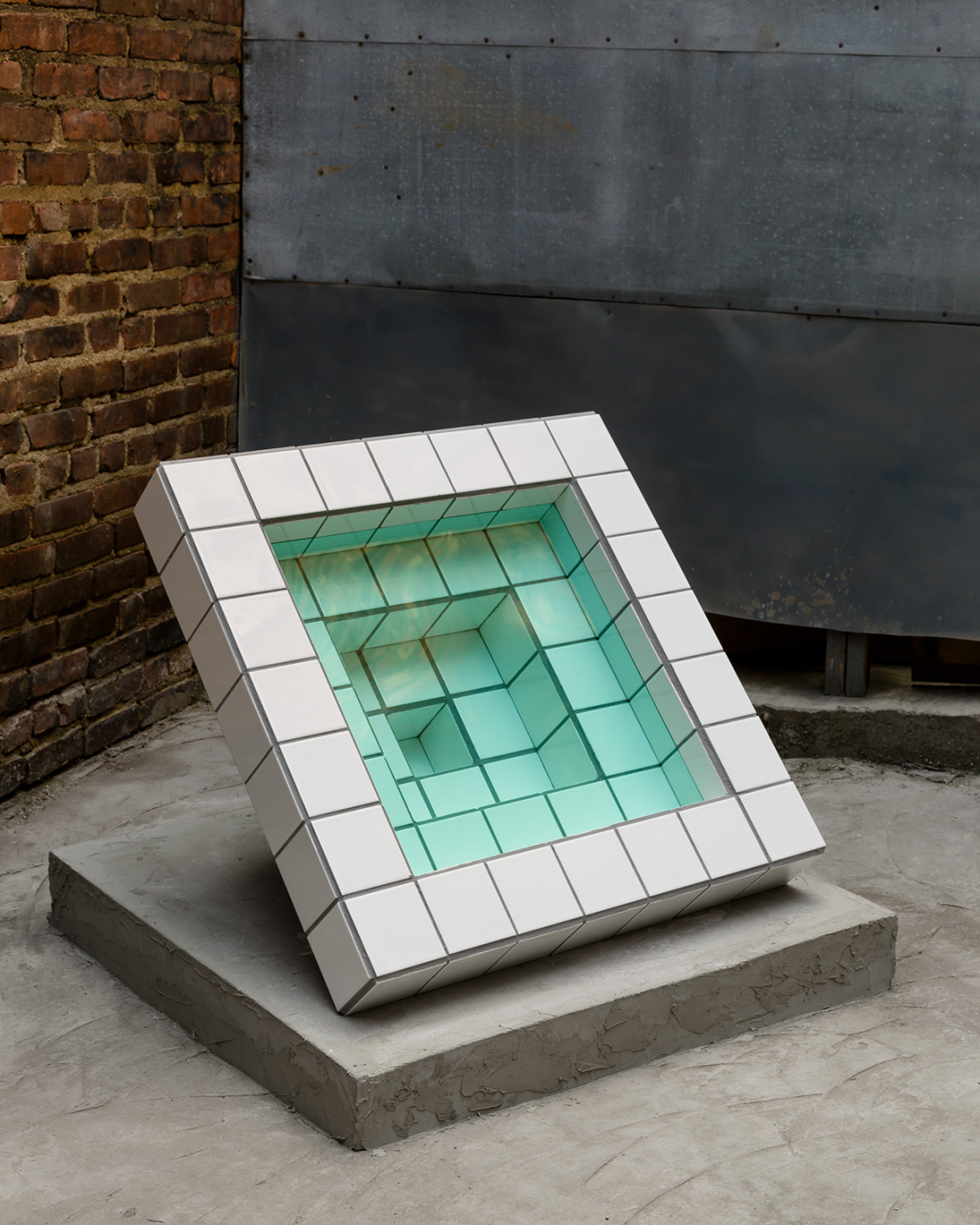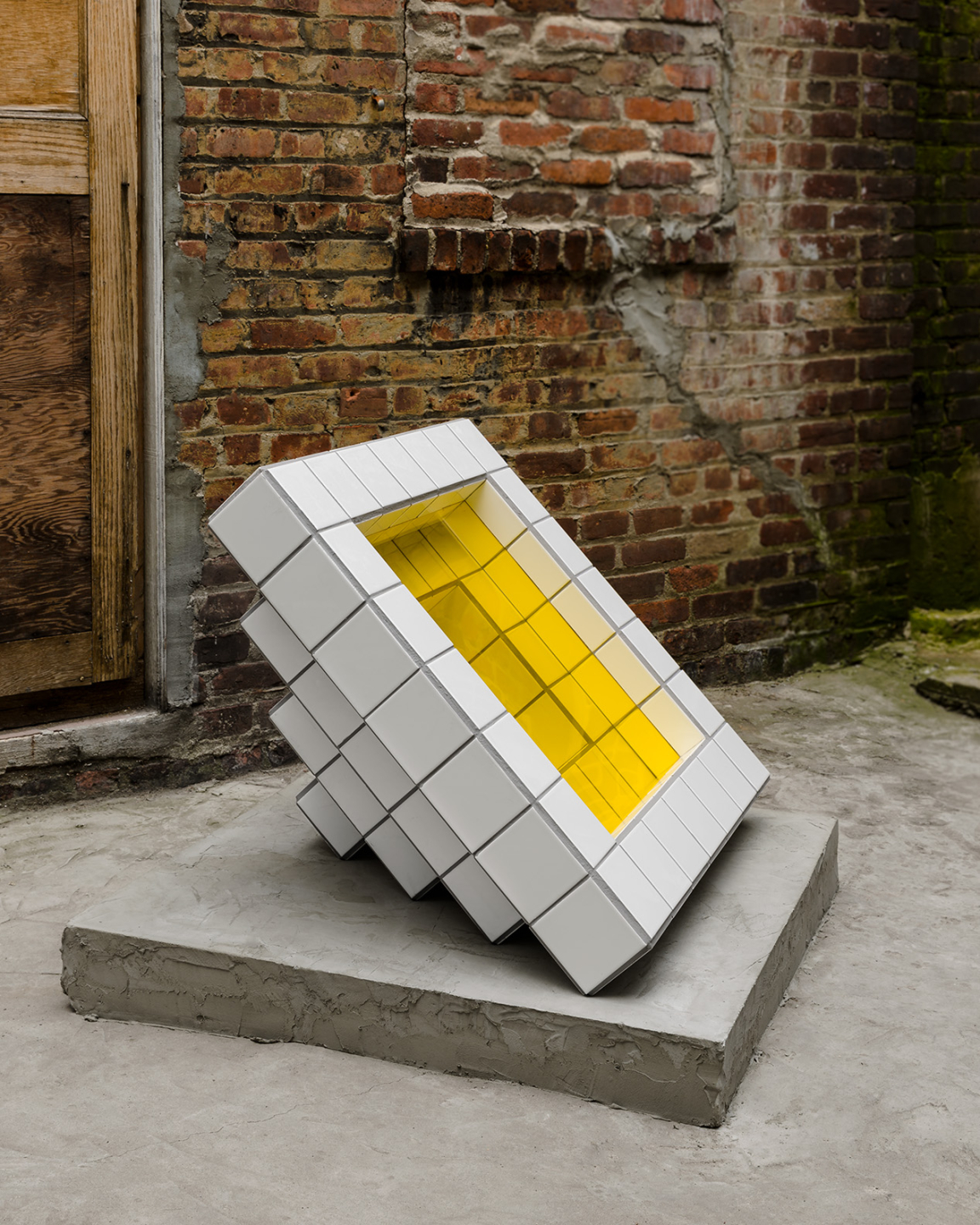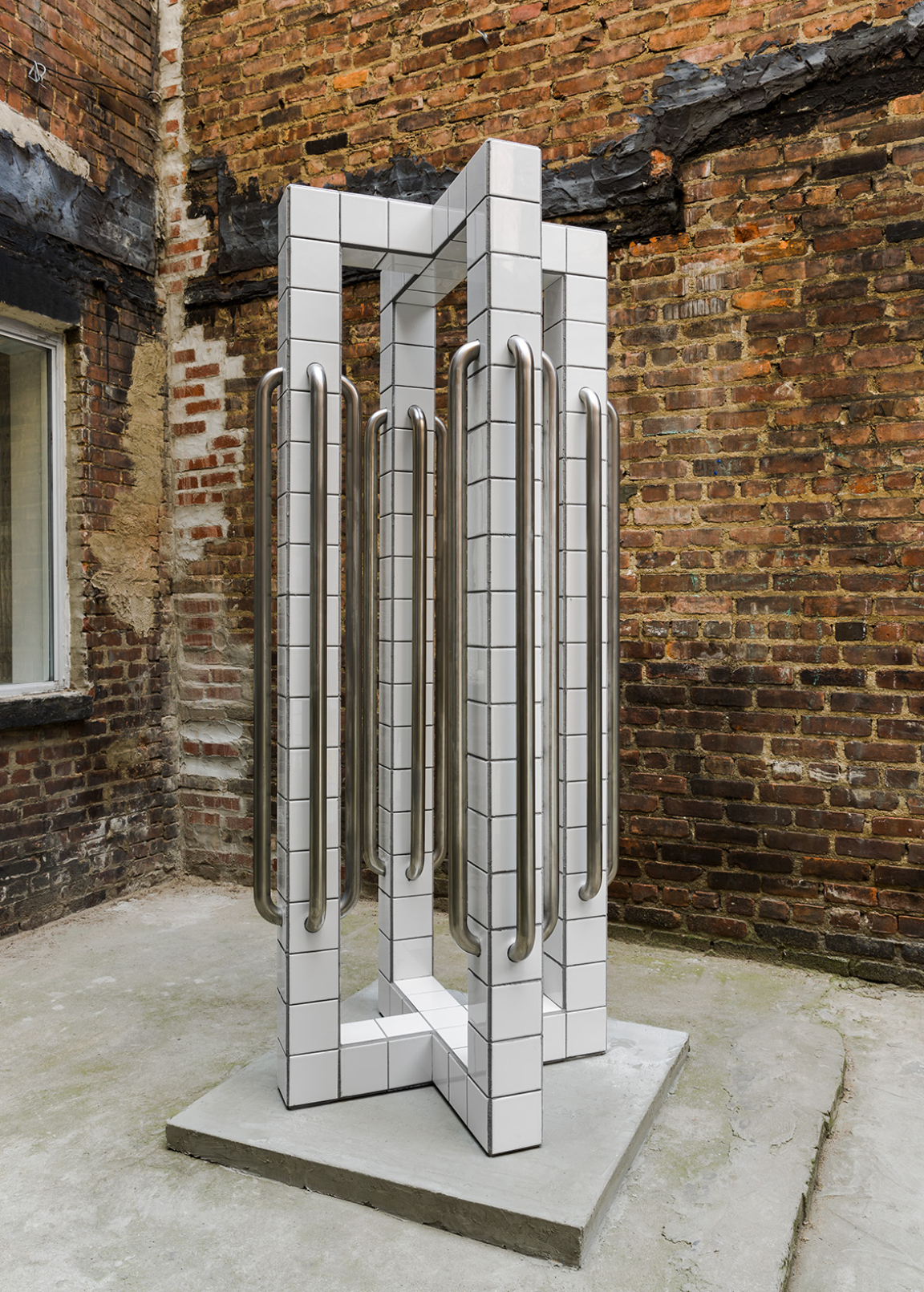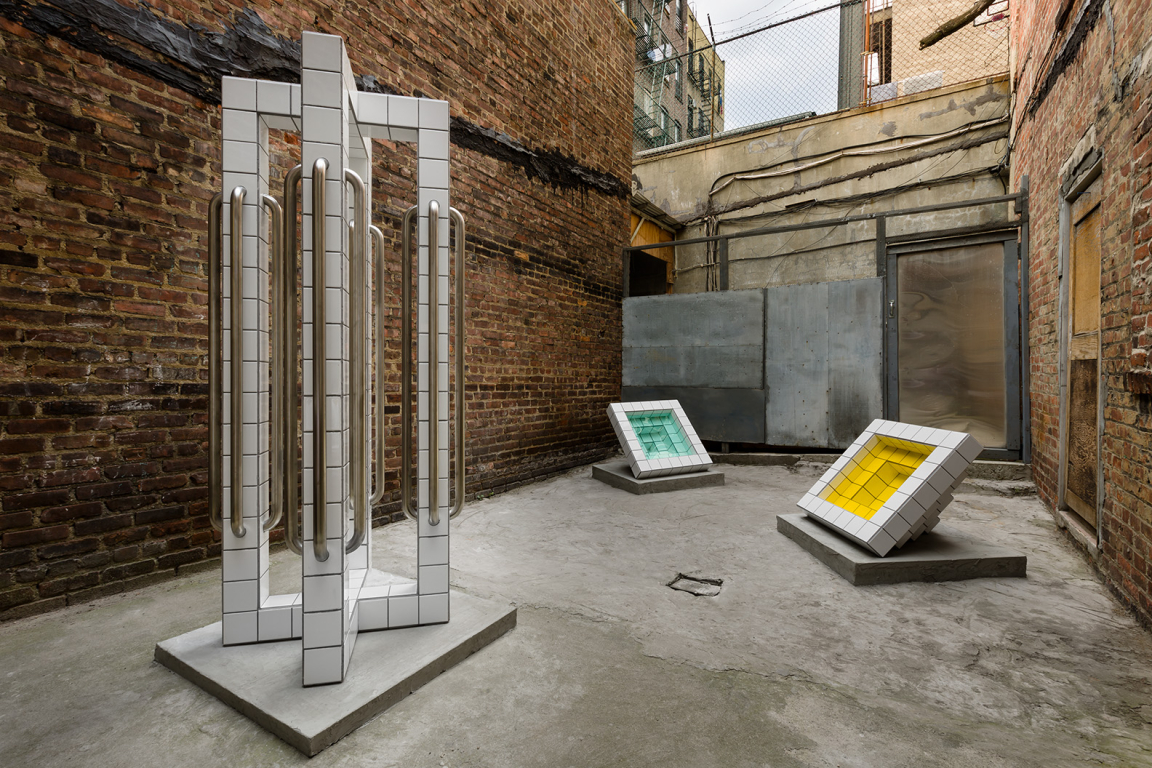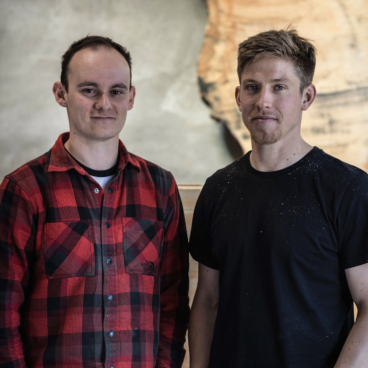Artist Zac Hacmon uses subway tiles to create beautiful sculptures
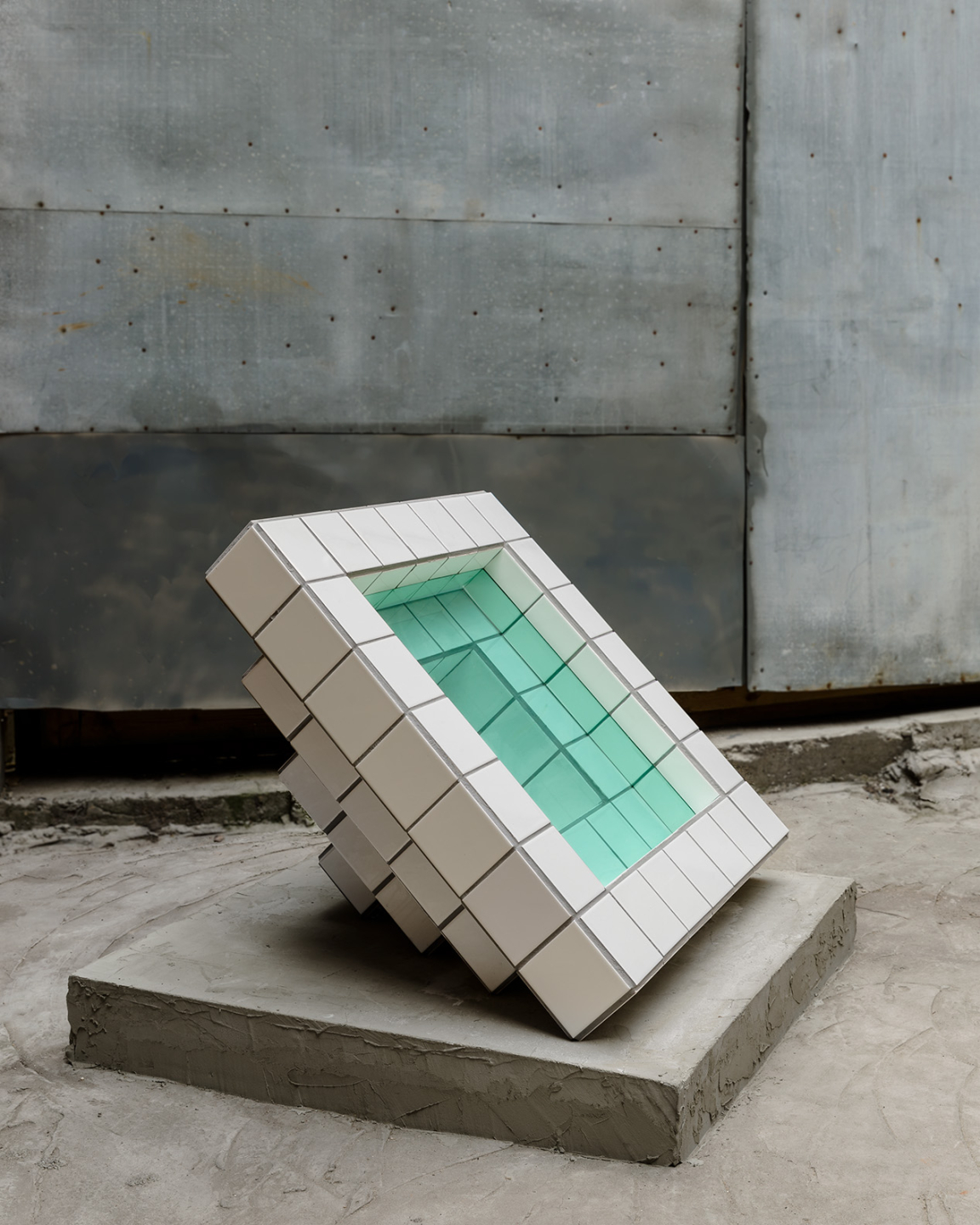
Brooklyn-based, Israeli artist Zac Hacmon is known for mixing up traditional architecture and various materials, focusing on techniques and elements both from the old and the modern, to create contemporary architectural sculptures for "space-age, futuristic and imaginary worlds".
In his latest series, Afterlife, he presents tile-based artworks consisting of 4x4 inch white industrial tiles, encouraging us to consider memory, time, displacement and altered states of ‘being’. This portal-like concept was imagined after the recent loss of a loved one.
The tiles are supposedly representative of the artists’ everyday surroundings; subway stations and domestic areas. Public spaces relating to and reflecting the private, each influencing the other. One of the sculptures is equipped with 16 grab bars suggesting safety and security, yet defective.
Several forms are sealed with transparent glass acting like filters or triggers, capturing the space inside these structures, giving a false sense of depth and the notion of another dimension within the form. You'll momentarily feel disoriented by what seems familiar and logical, yet eventually, realise the opposite is true.
Hacmon describes the individual pieces as “devices”, operating with efficiency rather than as a passive object. These “devices’ can be considered, portals; a gate or gateway to somewhere unknown. Shown together, the series of sculptures can be seen as multidimensional or shrine-like.
"I’m interested in the ‘in-between’ spaces, like corridors, borders, transit hubs," Hacmon tells Material Source. "There’s something fascinating that draws me to this, like the psychological shift that occurs between places, between a person’s role in one location to another.
"In my work, there’s an attempt to catch the moment of the shift itself. The fragments in my work come from these places, like the ceramic tiles, reminding us of a subway station that is in-between destinations. These places and alterations of role can offer a sense of freedom."
